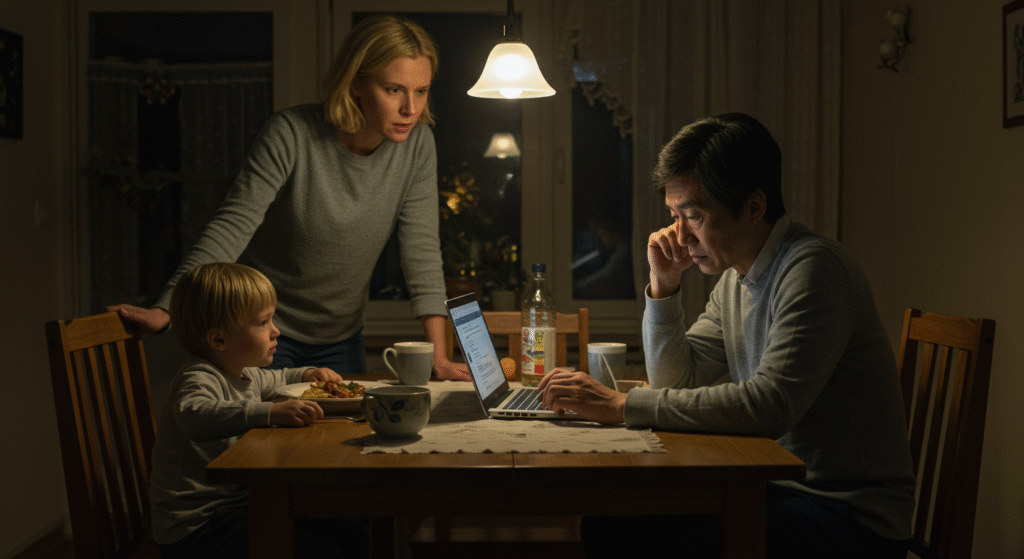I Still Love My Spouse… So Why Do I Feel So Alone?

Introduction
You’re married—but you feel like you’re living with a roommate. You go through the motions of daily life together: the kids, the bills, the calendar reminders. But something’s missing. The warmth. The closeness. The emotional spark.
If you’ve ever asked yourself, “Why do I feel so alone in this relationship?”, you’re not crazy—and you’re definitely not alone.
Many people feel emotionally isolated even in long-term relationships. The love is still there, but the connection feels lost. In this post, we’ll talk about the subtle ways distance creeps into a marriage, the unspoken emotional needs that often go unmet, and what you can do to start rebuilding closeness—even if your spouse seems emotionally checked out.
1. Love and Loneliness Can Coexist
The hardest part of emotional disconnection is the confusion it creates. You may still deeply love your partner. You’re committed. You’re loyal. And yet, something feels hollow. You miss the way they used to look at you, talk to you, touch you.
That ache isn’t imaginary. It’s a signal that your emotional needs aren’t being met—and it’s okay to say that.
Many people assume loneliness is a sign their marriage is broken beyond repair, but in reality, it’s a warning light. One that tells your connection is fading and needs attention.
2. The Quiet Drift: How Distance Builds Over Time
Most couples don’t fall apart all at once. They drift—slowly, quietly, over months or years.
You stop sharing little things. You stop laughing together. You assume your partner knows how you feel, so you stop saying it. Over time, small emotional ruptures turn into routines of disconnection.
Here are a few common signs the drift is happening:
- You talk more about logistics than feelings
- You spend more time on screens than with each other
- Intimacy feels like a chore or is nonexistent
- Arguments go unresolved or are avoided altogether
- One or both partners shut down emotionally
It’s not that you stopped loving each other. You just stopped seeing each other. And without that emotional visibility, loneliness settles in—even when you’re physically side-by-side.
3. The Myth of “We’re Just Busy”
Busyness is one of the biggest excuses for disconnection in marriage. Work, parenting, family obligations—it all stacks up. And while it’s true that life gets demanding, emotional connection doesn’t require hours. It requires intentionality.
A five-minute conversation with presence is worth more than a week of distracted interactions.
The problem isn’t always time. It’s that we stop prioritizing each other. We get so used to functioning as a team that we forget how to love as a couple.
4. Unspoken Needs and Emotional Starvation
In every relationship, there are needs we assume our partner will automatically meet—because they used to. But people evolve. Stress builds. And communication slips.
When those needs go unspoken—like needing more affection, affirmation, conversation, or simply to feel seen—we begin to starve emotionally. And emotional starvation often leads to withdrawal, resentment, or even temptation.
Some common needs include:
- Wanting to feel desired
- Needing verbal affection or affirmation
- Craving emotional safety or empathy
- Seeking shared experiences and laughter
It’s okay to have needs. It’s okay to ask for them. Suppressing your needs to “keep the peace” only guarantees that disconnection will grow.
5. When Your Spouse Has Emotionally Checked Out
One of the most painful dynamics is when you’re still trying—but your spouse seems emotionally absent. They’re physically present, but distant. They say “nothing’s wrong,” but they don’t open up. Or they’re reactive, distracted, or cold.
It’s tempting to take it personally, but often, their disconnection isn’t about you—it’s about them:
- Stress they haven’t named
- Depression or burnout
- Shame over how they’ve been showing up in the relationship
- Old emotional wounds they’ve never addressed
Still, your pain is real. It’s not your job to fix them—but you can create space that invites honesty and reconnection.
6. How to Rebuild Connection, Even If It Feels One-Sided
Rebuilding closeness doesn’t happen overnight. But small, consistent shifts can start to melt the emotional ice. Here’s how to begin:
a) Lead with Vulnerability
If you’re always saying “I’m fine” or hiding how lonely you feel, your partner may have no idea. Try saying:
“I love you, and I miss feeling close to you. Can we talk about how to reconnect?”
b) Make Eye Contact Again
This sounds simple, but when was the last time you really looked into your spouse’s eyes during a conversation? Emotional safety begins with attention.
c) Reduce Criticism, Increase Curiosity
Instead of saying, “You never talk to me,” try:
“I’ve noticed we’ve been more distant lately. How are you feeling in the relationship?”
d) Rebuild Rituals of Connection
Bring back something that used to belong to just the two of you—a walk, a song, a shared morning coffee. Small rituals rebuild emotional glue.
e) Seek Help if Needed
If you’ve tried, and the distance isn’t changing, marriage counseling can provide a structured, safe space to reconnect.
7. When to Stay, and When to Speak Hard Truths
Sometimes loneliness in marriage points to something temporary. But other times, it reveals a deeper breakdown—a relationship dynamic that’s emotionally unsafe or fundamentally unbalanced.
Here’s how to tell the difference:
- If your spouse is emotionally avoidant but open to growth → There’s hope
- If your spouse is emotionally abusive or manipulative → You may need boundaries or professional support
- If communication attempts are always shut down → Consider speaking to a therapist alone for clarity
You don’t have to stay stuck in loneliness. You deserve connection, care, and honesty.
8. Final Thoughts: Love Shouldn’t Feel Like Isolation
It’s possible to love someone and still feel completely alone beside them. That doesn’t make you weak. It makes you aware.
And awareness is the first step to change.
Loneliness in marriage doesn’t have to be permanent. With honesty, effort, and the courage to speak the unspoken, you can begin to restore the emotional bond that made you fall in love in the first place.
Because marriage isn’t just about staying. It’s about staying connected.
You still love your spouse. Now let’s find your way back to each other.









